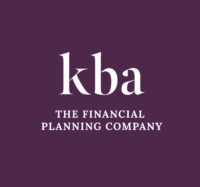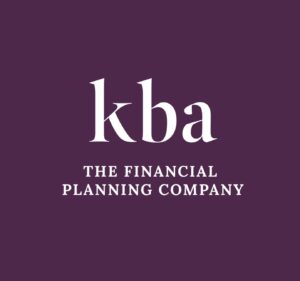Investing for the children in your life is one of the best gifts you can give. Imagine the opportunities your kids or grandkids might have with a healthy financial start to adulthood.
They could use the money to help pay for further education, make a strong step onto the property ladder, or have an adventure and travel the world without the worry of paying for half-decent hostels.
Along with the potential for more financial freedom, investing for kids early in life is a great way to help them learn important lessons about money. As they get older, you can involve them in conversations and decisions about where and how their money is invested.
Even better, if you start saving early enough, you could help them on their way to a £1 million fortune.
A recent report published in FT Adviser has revealed that, thanks to the miracles of compounding, with steady investment an 18-year-old could save £1 million by age 68 (the likely State Retirement Age by the time a child today reaches the retirement milestone).
The report details how, by saving £1.71 into their pension each day, an 18-year-old could have saved £1 million by the time they reach 68.
This equates to 50 years of around:
- £12 a week
- £52 a month
- £624 a year.
The calculations are based on an assumed high growth rate of 10%, the long-term average market return over the past 100 years.
But even with a more conservative 5% growth rate, an 18-year-old can still retire with a comfortable pension pot (£811,697) by saving £10 a day, or £3,650 a year.
Imagine what you could do if you started saving for your children or grandchildren from the day they were born.
Capitalise on the power of compound growth
You’re already winning when you invest for young children, as the money you put away is likely to be invested for several years.
Starting with this long-term approach from the get-go means you can enjoy all the benefits of time.
Whatever the money will be used for in the future, take advantage of the first 18 years of a child’s life and you (and they) will be in an enviably powerful position to generate more wealth. It could make a massive difference to their life choices in early adulthood.
While you won’t quite reach a million by the time they turn 18, you can make significant progress by investing in a pension or Junior ISA (JISA) from when a child is born.
4 things to consider when investing for a child
There are four factors to think about before you decide how to invest for children:
- Timescale – how long before you or they will want to access the funds?
- Risk – how much risk are you prepared to take in pursuit of better returns?
- Tax – do you want to make your investment plan tax-efficient? (Hint: yes, you do!)
- Fees and charges – what costs are involved in setting up, managing, and accessing the investment?
We can help you understand all the available options. We’ll demystify and explain the tax situation and tell you how ongoing costs associated with investments for children might make a difference to the wealth you can grow.
If you want to set up defined access arrangements and mitigate any Inheritance Tax implications, we can help with that too.
Decide which investment vehicle suits your goal
Invest through a Junior ISA (JISA)
A Stocks and Shares JISA is a useful long-term investment vehicle, into which you can save a maximum of £9,000 in the 2021/22 tax year.
Parents or guardians must open the JISA, but once set up anyone can make payments into it.
And investing in a JISA guarantees the money definitely goes to the child, since they are the only person allowed to access the money, when they turn 18. Once they reach 18, they can take the money out. Or they can transfer the account to an adult ISA, keep the funds invested and continue to make payments into it.
Potential returns on a JISA
If you saved £9,000 into a JISA every year from the child’s birth, the JISA could be worth £261,901.52 by the time they turn 18.
This calculation is based on an assumed growth rate of 5%. If you doubled the growth rate, you would have £450,422.41.
The above sums assume all dividends are reinvested and don’t take account of fees, which will make some difference to the final sum.
Whatever the growth rate you achieve, over the long-term the power of compound interest is indisputable. If you can’t put away as much as £9,000 each year, save what you can into a JISA for your grandchildren, and they’ll still see healthy growth over time.
The money will be free of both Income Tax and Capital Gains Tax when they withdraw money from their JISA, which they can do from age 18. Alternatively, they can transfer the JISA to an adult ISA and continue saving and benefiting from more and more compound interest.
Start contributing to a pension
An alternative to a JISA is to save into a pension. This is not as crazy as it might sound…
Once set up by the child’s parent or guardian, you can get tax relief on payments up to £2,880 each tax year. The government automatically tops up contributions by 20% – even for a child – so an annual payment of £2,880 automatically becomes £3,600.
Of course, you can pay in more than this, but you’ll only get the tax gains on the first £2,880 you contribute, unless your child or grandchild has earnings above this amount.
If you invested £2,880 into a child’s pension every year from when they are born, the pension fund could be worth £180,167 by the time they are 18.
The above calculation is based on the full invested amount of £3,600 every year, growing at an assumed rate of 10%. But even assuming growth at 5% the pension pot could still be worth £104,761 by the time the child is 18.
If they continued to pay in at the same rate over the course of the next 50 years, the pension pot could be worth a whopping £2,070,230. And that’s sticking with the assumed 5% growth rate.
The above sums don’t take account of fees, which will make some difference to the final sum.
Any growth is free of tax, which helps it to increase in value. Like any investment, its value can go down as well as up.
If you want to give the children in your life a head start in adulthood and you’d like to discuss all the available options or the type of fund which might be best, get in touch. Email us at contactme@kbafinancial.com or call us on 01942 889883.
Please note: This blog is for general information only and does not constitute advice. The information is aimed at retail clients only.
The value of your investment and any income from them can go down as well as up and you may not get back the original amount you invested. Past performance is not a reliable indicator of future performance.
A pension is a long-term investment. The fund value may fluctuate and can go down, which would have an impact on the level of pension benefits available. Your pension income could also be affected by the interest rates at the time you take your benefits.
HM Revenue and Customs practice and the law relating to taxation are complex and subject to individual circumstances and changes which cannot be foreseen.



